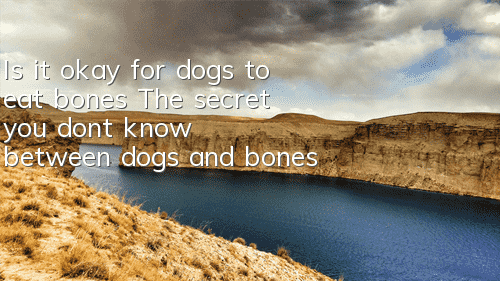Do dogs like to chew bones?
The bones themselves are very nutritious and delicious. They contain high calcium content and a large amount of protein, so dogs love to chew bones. Dogs will also enjoy the relaxation and pleasure of grinding their teeth while enjoying the delicious food when chewing bones. Bones satisfy the dog's desire to chew and chew. Chewing can stimulate the dog to release endocannabinoids and increase the dog's sense of happiness!
Some bones are extremely harmful
There are a lot of bacteria and parasites on uncooked bones, and dogs are likely to suffer from diarrhea and vomiting after eating them. Especially for dogs who usually only eat dog food, their digestion level has been reduced, and it is not delicious but painful to them.
A dog will swallow small broken bones if he doesn’t pay attention, and it will easily get stuck in the throat. If the bones have some sharp edges, they may even scratch the dog’s intestines and stomach.
How to eat bones
Like some large bones of cattle, sheep, and pigs, they can be stewed for a longer time. The crispier the bones, the better, so that dogs will not chew the bones because they are too hard and difficult to chew. Causing injuries to the mouth.
The bones of chickens, ducks and goose need to be carefully selected, because these bones are often fine and sharp, and may scratch the dog's stomach if not careful.
What should I do if my dog is injured while chewing bones?
If your dog poops white after eating bones, and there is mucus or even blood in the next poop, it means that your dog is chewing bones. In the process of chewing bones, the intestines and stomach have been injured, and symptoms of traumatic gastroenteritis have appeared. You must seek medical treatment in time.
What can replace bones
Although bones are sometimes extremely harmful to dogs, they are necessary in the dog’s life. All dogs need to chew. For example, the development of puppies and the maintenance of strong masseter muscles in adult dogs require the presence of bones. So if some people are afraid that their dogs will be injured by eating bones, they can choose suitable alternatives. For example, chewing gum, etc., it is best to choose high-quality ones that are rich in protein, calcium and other nutrients.








